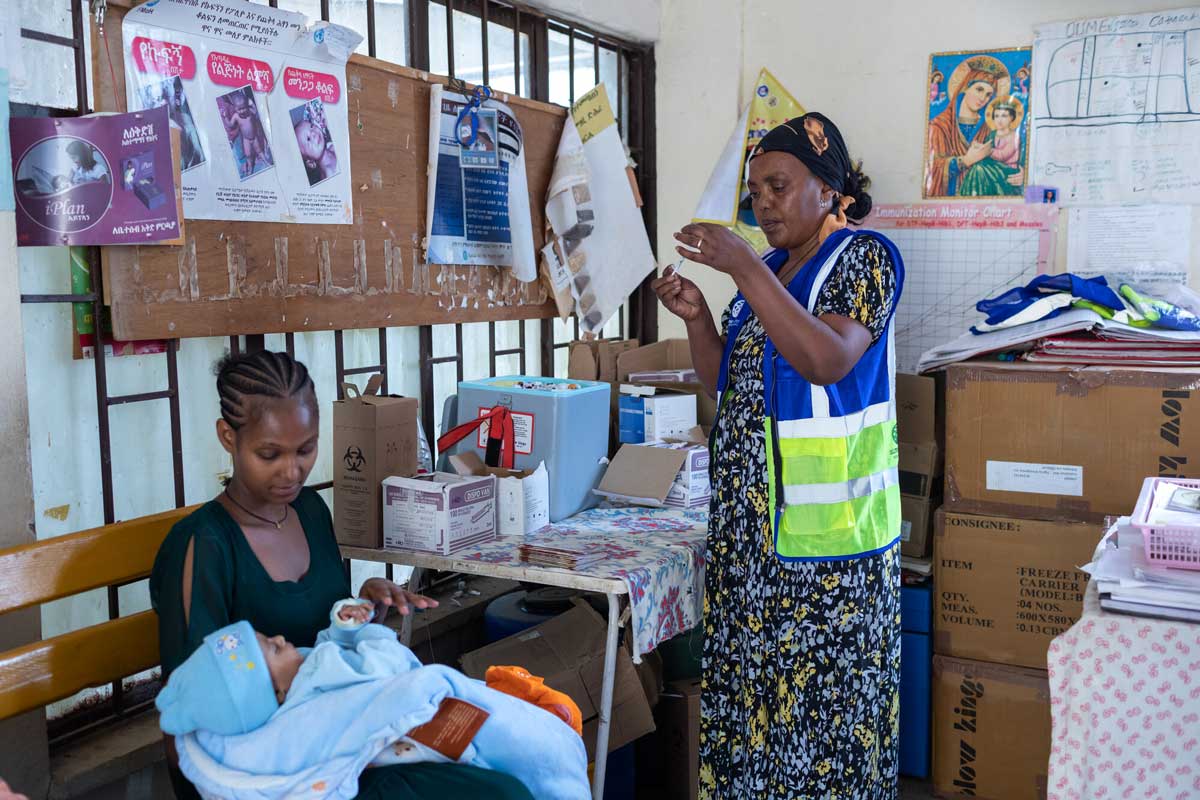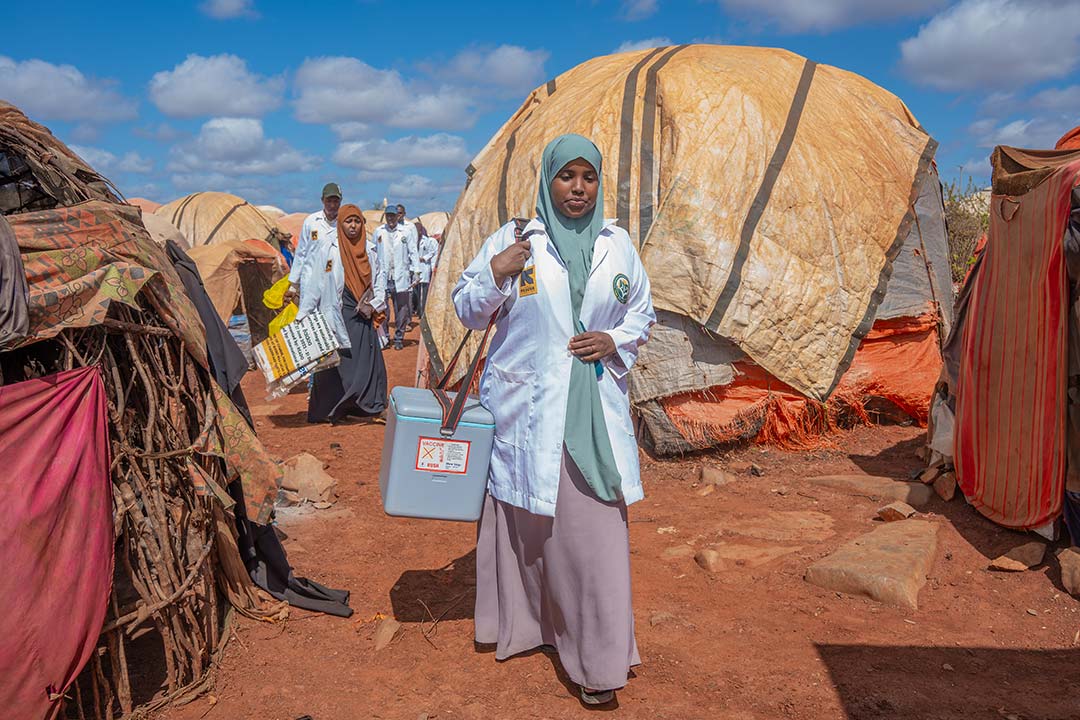Study suggests breaking down gender-related barriers will increase access to vaccines
Addressing the reason that women struggle to access healthcare could increase the number of children who get lifesaving vaccines.
- 13 August 2024
- 4 min read
- by Priya Joi

While vaccine hesitancy may be the reason that often makes the headlines to explain why people miss out on lifesaving immunisations, barriers to access are often a much deeper, more complex challenge. And many of these barriers are related to gender.
In a study published in the journal Vaccines, Anna Kalbarczyk at the Johns Hopkins Bloomberg School of Public Health, Baltimore, USA, and colleagues, reviewed 92 articles that described gender-related barriers to immunisation in sub-Saharan Africa and South Asia.
Kalbarczyk and colleagues focused on gender because, as they say, “in low- and middle-income geographies, while mothers bear primary responsibility for their children’s health, they often lack the resources and/or decision-making authority to access vaccination services.”
The researchers found that many women had no autonomous decision-making over their health or the health of their children. They rarely had direct access to funds, relying instead on family members to cover costs. And as women are often required to look after the household as well as children while also juggling employment, many just didn’t have the time to travel long distances to a health centre.
The lack of agency over decision-making could sometimes have dangerous consequences – some women who opposed their husbands’ decision not to immunise their children faced emotional, verbal and physical violence.
This affects the health of the women themselves, but also that of their children. In one study in Nigeria, women with high household decision-making were more likely to have their child fully immunised.
Another study in Ethiopia found that mothers who made health care decisions jointly with their husbands were nearly twice as likely to vaccinate their children fully than when decisions were made by the husbands alone. Mothers who made health care decisions themselves were four times more likely to fully vaccinate their children than when decisions were made by husbands alone.
“In low- and middle-income geographies, while mothers bear primary responsibility for their children’s health, they often lack the resources and/or decision-making authority to access vaccination services.”
- Anna Kalbarczyk at the Johns Hopkins Bloomberg School of Public Health, Baltimore, USA, and colleagues
However, autonomy alone is not enough. Some studies measured ‘empowerment’, defined as including control over decision-making and independence of movement, but financial resources are just as important – being able to travel to a health centre won’t matter if they can’t afford to have their kid vaccinated.
There were misconceptions around vaccines that were also identified as barriers to immunisation. Some caregivers and health care workers feared that different vaccinations might cause infertility, or that the HPV vaccine would lead to girls being more sexually active (this wasn’t a concern when it came to boys).
While some of these factors are embedded in social norms in specific societies that might be beyond the ability of health systems to shift, the researchers say that there are many issues that could be solved to increase the ability of women to access vaccines.
One major factor identified by several studies was the way women were treated by health workers and the health care system. Women were not always informed about what the vaccines were for, their potential side-effects or how to alleviate these side-effects.
Some women also report being bullied or harassed by health workers for missing appointments or forgetting their child’s vaccination card. All of this creates negative associations with health systems and immunisation, and creates a sense of distrust of health workers.
Even when women are keen to get their children vaccinated and have the autonomy to able to travel to health clinics to access them, the cost of travel or vaccines can be insurmountable. In addition, when clinics are too far away, vaccines are unavailable or vaccination schedules are not compatible when the women can access the clinic, this will also hinder access to vaccines.
Have you read?
The researchers say that with this knowledge, vaccine programmes could adapt in some key ways to increase access. Training providers on respectful patient treatment would influence the likelihood of women to return for immunisation services. Engaging with antenatal care is an important predictor of immunisation, indicating that strengthening these services could help improve vaccine coverage.
“Meeting people where they are to enhance access could include constructing more facilities or satellite clinics, providing mobile options, or conducting home visits to particularly marginalized and hesitant groups,” say the researchers.
One of the biggest barriers is money: “There is abundant evidence that offering caregivers, especially those living in poverty, compensation for the direct and opportunity costs of immunisation is a highly effective way of putting financial resources into the hands of women, which can enhance their economic independence and be used to vaccinate children,” the researchers conclude.
More from Priya Joi
Recommended for you









